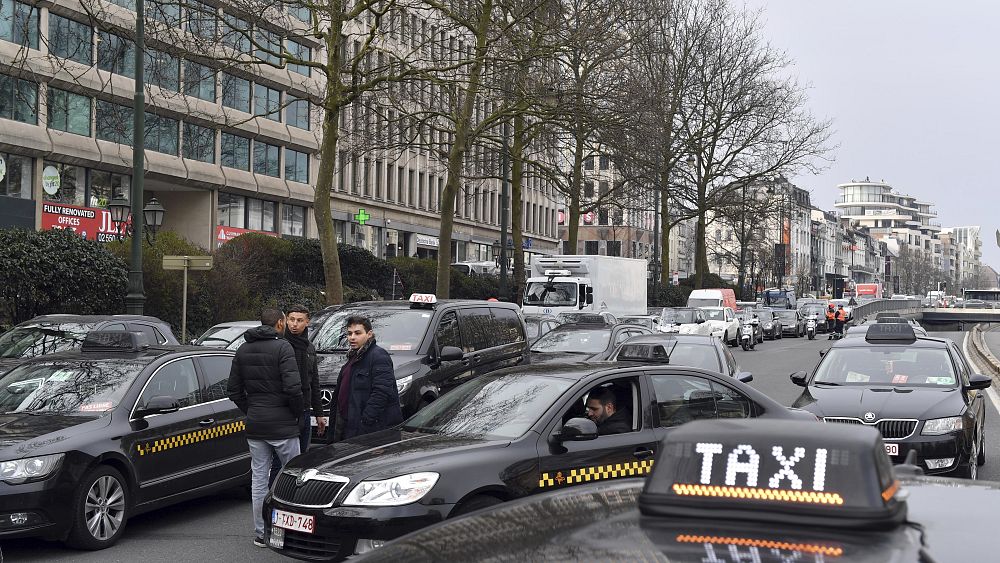
Dozens of Uber drivers protested in the Belgian capital on Thursday after the Brussels appeal court ruled the ride-hailing app breached local legislation.
Under the ruling, about 2,000 drivers who use the Uber app will be required to cease their activity by Friday evening.
“As of 6PM on Friday November 26, only 5% of cars will be available to move you around Brussels (only drivers with a Flemish taxi license),” Uber told its Brussels customers in an email.
“We are disappointed by the court’s decision and deeply concerned for the drivers, as they will lose their ability to earn via the Uber app from Friday,” the company went on.
The ruling is the latest episode of a longstanding legal battle pitting Uber against a traditional taxi company, Taxis Verts.
In 2015, the UberPop service, which connected non-professional drivers to customers, was banned in Brussels. But Uber still continued to run its service with licensed drivers.
The Brussels appeal court ruled on Wednesday that the 2015 ruling actually applied to all of Uber’s services.
The Brussels government has supported traditional taxis in the standoff. It is accused of delaying regulation that would recognise the licenses of Uber drivers and other ride-hailing services.
“The courts’ decision was made based on outdated regulations which the government has promised to reform for the past seven years,” Uber said.
“We, therefore, urge the government to find a solution that allows drivers to continue working and provide for their families,” it added.
Taxis Verts said the ruling proved they were right. “We weren’t telling stories, you need a taxi license to do this kind of transport,” Taxis Verts’ deputy-administrator Michele Pêtre told L’Echo newspaper.
The Brussels regional government said in a statement that they took note of the decision of the Brussels court and are also seeking a temporary response to the situation.
“It is Uber’s responsibility to have allowed this sector to develop with the legal risk of seeing this service banned,” Brussels minister-president Rudi Vervoort said in a statement.
Since launching in Europe in 2011, Uber has rattled traditional taxis, sparking protests and spats with local authorities.